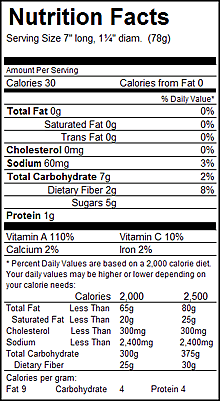Importance of breathing in human lifestyle
According to the scholars there is a big relation between breathing and mind.To create centralization between whole power of brain and all nerves energies, the breath exercises are being suggested by scholars.Further to achieve the positive character it can be take help through breath exercises.The healing rays always be present in the universe.By getting energy from these healing rays through devotion we can do a lot of useful works.When theses rays concentrate on one place,then became a positive power.set healthy effects on human body and brain. Understand this by other way ,during daytime sunlight is spread every side and we feel it normal,but when it concentrate on a paper or peice of wood through magnifying glass the fire burning.
According to the psychologists breathing speed or breathing phichiation determine our life
limits.Breathing fast and breathing disorderly decrease the life limit. On the other side breathing slowly and calmly increase the possibilities of long life and you can live a healthy life.Beside this lifestyle has very importance in life.During interesting in a material the wishes to get it come in the human mind and he tried to get it immediately,then, in this struggle, he begin to waste his qualities rapidly.On the contrary with believe of God and patience can save his qualities to waste.It is noted that heart pulsation and breathing speed increased during negative emotions like angry,hate or revenge.
This fact is discovered that on scientific point of view base that during human sleep the breathing speed became very slow and due to slow breathing speed the such rays overcame him and bring him in Imperturbable sleep.Mentally calm persons sleep deep.You have noted that during sleep or in dream ,if somebody looks the horrible or fear scenes,his breathing speed and heard pulsation become very fast after his wake.So here we can say that breathing close to the perception while slow breathing brings him close to the unconsciousness.
Health By Breath Exercises
Here are some exercises who will give you support to be healthy and strong.
Exercise No-1
Stand streight and both hands touched with body right and left.Now lift the both hands up,keeping them straight over the head and touch the hands each other.During this exercise stop the breath inside as possible.After some minutes bring hands back and gradually and breath out by mouth slowly.
Exercise No-2
Stand straight and spread your hands in front of you.Breath inside and stop as possible.Bring both hands backside after one minute bring hands back in front.Repeat this exercise several times and keep breathing stop as possible and keep moving hands front to back.At last breath out by mouths lowly not fast.
Exercise No-3
Stand straight and spread your arms in front of you,now breath deep and stop breath inside ,and move the arms in round in circle.some movements clockwise and some against it..During this exercise stop breath inside as possible then breath out by mouth. Remember that during arms movements it is very necessary breathing stop continuously.
Exercise No-4
Lay down on ground on belly and hand also on ground near arms,breath in fully and stop
inside,all body must be straight until all parts of body in hurry.Now lift your whole body up while all weight must be on hands fingers and feet fingers,After some movements come back in first position and breath out by mouth.
Exercise No-5
Stand straight and put both hands on wall as anyone push the car forward position.Bring the chest near the wall and breath in and stop in side .Keep stop continuously.All body weight feel on your hands push your body back from the wall with hands power,with this movement breath out by mouth.

According to the scholars there is a big relation between breathing and mind.To create centralization between whole power of brain and all nerves energies, the breath exercises are being suggested by scholars.Further to achieve the positive character it can be take help through breath exercises.The healing rays always be present in the universe.By getting energy from these healing rays through devotion we can do a lot of useful works.When theses rays concentrate on one place,then became a positive power.set healthy effects on human body and brain. Understand this by other way ,during daytime sunlight is spread every side and we feel it normal,but when it concentrate on a paper or peice of wood through magnifying glass the fire burning.
According to the psychologists breathing speed or breathing phichiation determine our life
limits.Breathing fast and breathing disorderly decrease the life limit. On the other side breathing slowly and calmly increase the possibilities of long life and you can live a healthy life.Beside this lifestyle has very importance in life.During interesting in a material the wishes to get it come in the human mind and he tried to get it immediately,then, in this struggle, he begin to waste his qualities rapidly.On the contrary with believe of God and patience can save his qualities to waste.It is noted that heart pulsation and breathing speed increased during negative emotions like angry,hate or revenge.
This fact is discovered that on scientific point of view base that during human sleep the breathing speed became very slow and due to slow breathing speed the such rays overcame him and bring him in Imperturbable sleep.Mentally calm persons sleep deep.You have noted that during sleep or in dream ,if somebody looks the horrible or fear scenes,his breathing speed and heard pulsation become very fast after his wake.So here we can say that breathing close to the perception while slow breathing brings him close to the unconsciousness.
Health By Breath Exercises
Here are some exercises who will give you support to be healthy and strong.
Exercise No-1
Stand streight and both hands touched with body right and left.Now lift the both hands up,keeping them straight over the head and touch the hands each other.During this exercise stop the breath inside as possible.After some minutes bring hands back and gradually and breath out by mouth slowly.
Exercise No-2
Stand straight and spread your hands in front of you.Breath inside and stop as possible.Bring both hands backside after one minute bring hands back in front.Repeat this exercise several times and keep breathing stop as possible and keep moving hands front to back.At last breath out by mouths lowly not fast.
Exercise No-3
Stand straight and spread your arms in front of you,now breath deep and stop breath inside ,and move the arms in round in circle.some movements clockwise and some against it..During this exercise stop breath inside as possible then breath out by mouth. Remember that during arms movements it is very necessary breathing stop continuously.
Exercise No-4
Lay down on ground on belly and hand also on ground near arms,breath in fully and stop
inside,all body must be straight until all parts of body in hurry.Now lift your whole body up while all weight must be on hands fingers and feet fingers,After some movements come back in first position and breath out by mouth.
Exercise No-5
Stand straight and put both hands on wall as anyone push the car forward position.Bring the chest near the wall and breath in and stop in side .Keep stop continuously.All body weight feel on your hands push your body back from the wall with hands power,with this movement breath out by mouth.
Exercise No-6
This exercise we can do in standing position and sitting position as well.Only remember that during this exercise the spine must straight now cerve in it .Then breath inside slowly.First time breath and stop inside then breath further long until oxegeon fully fill in the lungs,keep breath stop inside after some time breath out my nose.

This exercise we can do in standing position and sitting position as well.Only remember that during this exercise the spine must straight now cerve in it .Then breath inside slowly.First time breath and stop inside then breath further long until oxegeon fully fill in the lungs,keep breath stop inside after some time breath out my nose.
.jpg)
.jpg)
.jpg)
.jpg)
.jpg)
.jpg)
.jpg)
.jpg)


.jpg)
.jpg)
.jpg)
.jpg)

.jpg)
.jpg)
.jpg)